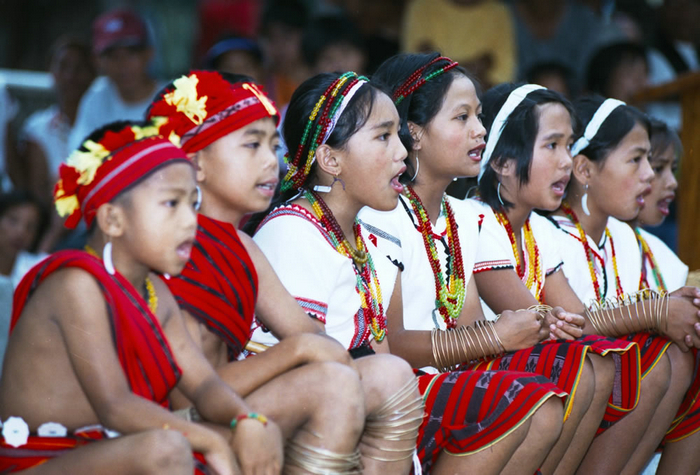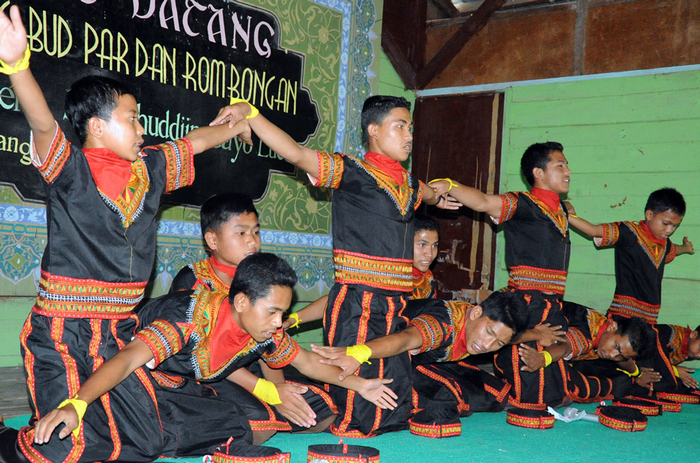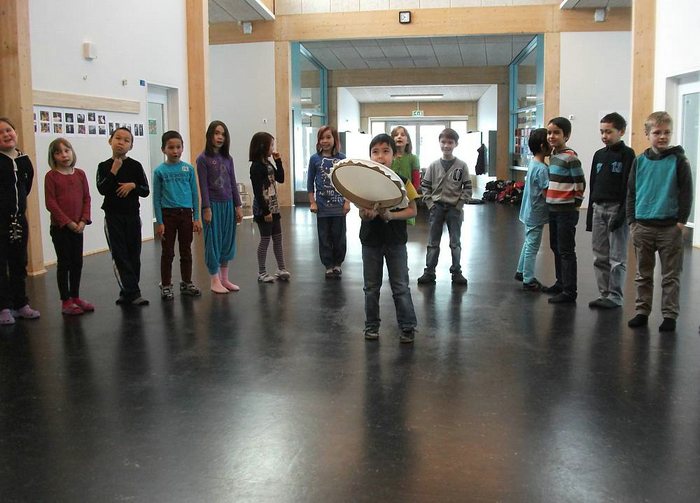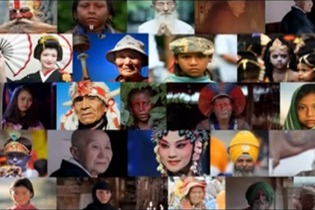9 August: UNESCO celebrates the International Day of the World’s Indigenous People

This year’s theme for the International Day of the World’s Indigenous People is “Indigenous Youth as Agents of Change for Self-determination”.
Since its adoption 20 years ago, the 2003 Convention has recognized that communities, including indigenous peoples, are at the center of intangible cultural heritage creation, safeguarding, and transmission.
Indigenous peoples hold a rich diversity of living heritage, including practices representations, knowledge, and skills that foster values of respect, custodianship and reciprocity towards nature and promote awareness and understanding of the diverse value systems and concepts that they have in relation to the natural world. The practice and transmission of this rich heritage contributes to the ongoing vitality, strength, and wellbeing of bearer communities. That’s why acknowledging the essential role of indigenous youth as key agents for living heritage safeguarding is fundamental.
The theme for this year ’Indigenous Youth as Agents of Change for Self-determination’ seeks to highlight the participation and young members within these communities, while also empowering indigenous youth, as the transmission of the living heritage to the next generation is vital for the vitality strength, and wellbeing of indigenous peoples, their cultures, histories, and aspirations.
Indigenous communities and youth face several challenges, including social and demographic changes, environmental degradation, the influence of mass media, educational systems, which result in a weakened practice and transmission of living heritage, the loss of traditional knowledge systems, and the erosion of cultural diversity.
On this International Day, UNESCO affirms its commitment to intergenerational dialogue for living heritage safeguarding so as to ensure that living heritage is passed on to the next generations and leveraged to improve the lives of young people.

In the southern Amazon rainforest, the children actively participate in the tasks related to the Yaokwa, the Enawene Nawe people’s ritual for the maintenance of social and cosmic order. During the ritual, the boys accompany their fathers to the dams and are allocated certain tasks according to their age, as well as keen observation of the adult proceedings. The youngest ones entertain themselves with games that simulate the building of dams, in the case of the boys, and the preparation of the food dishes, in the case of the girls.

Enkipaata, Eunoto and Olng’esherr are three interrelated male rites of passage of the Maasai community. Mainly practised by young men of the Maasai community aged between fifteen and thirty, these rites are significant to the community because they involve the transmission of indigenous knowledge, including Maasai rituals, legends, traditions and life skills through songs, folktales, proverbs, riddles, and events from older to the younger generation, thus providing the Maasai community with a sense of cultural identity and continuity.

In the Aceh province in Sumatra, boys and young men perform the Saman dance. Its movements symbolize the daily lives of the Gayo people and their natural environment. The frequency of Saman performances and its transmission are decreasing, however. Many leaders with knowledge of the Saman are now elderly and without successors. Other forms of entertainment and new games are replacing informal transmission, and many young people now emigrate to further their education.

For Greenlandic Inuit, drum dancing and singing embodies a shared identity and a sense of community as well as a means of creating continuity between the past and the present. The practices are perceived as symbols of equity and equality in Greenland and are universally recognized as belonging to everyone, regardless of age, gender, social status, or political views.
To complement the effort, UNESCO supports the safeguarding of living heritage by providing financial and technical resources to States Parties through the Intangible Cultural Heritage Fund.
Field School for capacity-building in safeguarding living heritage of ethnic communities in Thailand
This two-year project seeks to enhance the capacity of the Pgakenyaw Karen, Pwo Karen, Moken, Moklen and Urak Lawoiwer communities in Thailand to safeguard their intangible cultural heritage. The project entails the organization of hands-on trainings, fieldwork activities to inventory living heritage, the development of safeguarding plans, knowledge exchange and networking between the beneficiary communities, as well as policy guidance.
Pilot inventory of the intangible cultural heritage of the communities of the Lobaye forest prefecture in Central African Republic
The project aims to develop a pilot inventory of intangible cultural heritage for twelve communities of the Lobaye forest prefecture: the Ngbaka, Mondjombo, Issongo Mbati, Bouaka, Bolamba, Bondjo, Bagandou, Bakota, Bayaka, Gbaya and Bofi. This eighteen-month initiative seeks in particular to conduct community-based inventories and provide the Central African Republic with an inventory framework for living heritage safeguarding.
Community-based inventorying and capacity building of indigenous communities for safeguarding Intangible Cultural Heritage in Sindh and Khyber Pakhtunkhwa provinces in Pakistan
This twenty-four-month project aims to improve the quality of life of the Kalasha and the Thari, two geographically remote communities in the provinces of Sindh and Khyber Pakhtunkhwa. The project foresees the development of community-based inventories of living heritage, pedagogical tools for educational institutions, and capacity building of bearers and organizations to promote economic development and income generation.
Aixan/Gana/Ob#ANS TSI //Khasigu, ancestral musical sound knowledge and skills (international assistance) in Namibia
The Aixan /Gana /Ob #ANS TSI //Khasigu is a tradition of performing such music currently facing many threats. This thirty-six-month project is aimed at improving the visibility of this living heritage element, enhancing, and promoting the element among youth, community members and beyond. The project foresees and increased transmission of music performance skills among young people through the introduction of a community non-formal teaching programme in the five targeted towns.

Address: 81, Laiguangying West Road, Chaoyang District, Beijing, China
Zip Code: 100021
Tel: 86-10-64966526
Fax: 86-10-64969281
E-mail: crihap@crihap.cn
Leave us your e-mail address, we'll let you know about current events.



